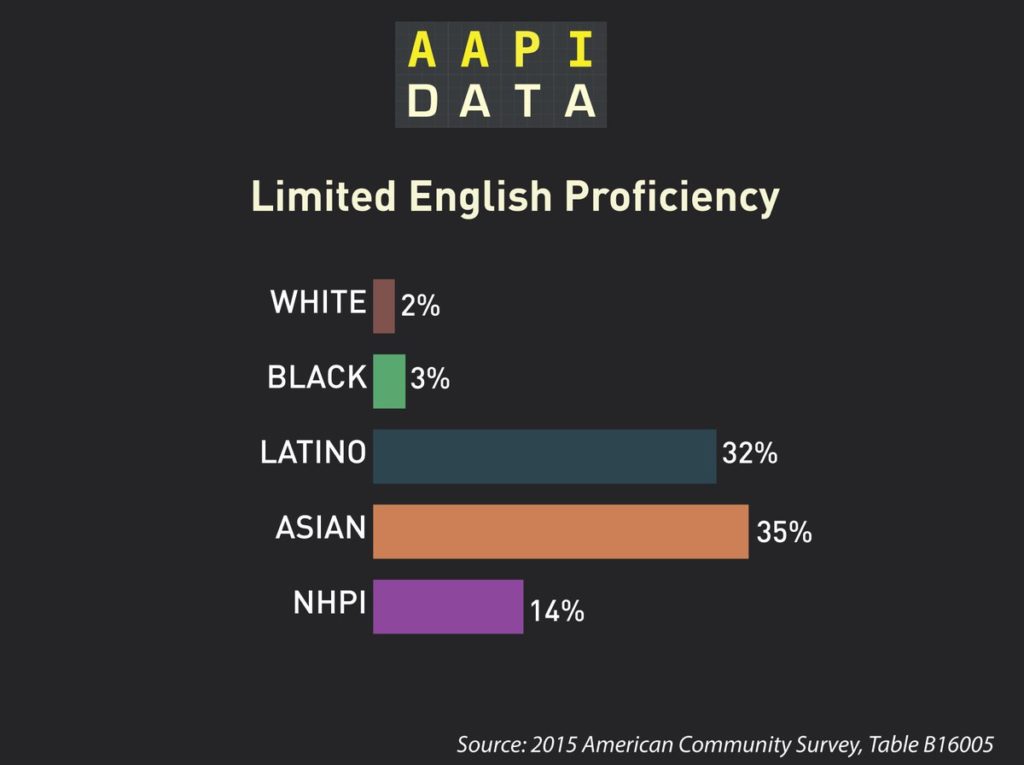Alzheimer’s disease is a public health issue that impacts many. In the United States, 5.8 million people live with Alzheimer’s, while over 16 million family members and friends serve as their unpaid caregivers.
In light of June being Alzheimer’s & Brain Awareness Month, the National Asian Pacific Center on Aging (NAPCA) is taking the time to reflect on how Alzheimer’s and other forms of dementia uniquely impacts the aging Asian American and Pacific Islander (AAPI) community. Working closely with older adults through our programs, we feel the importance of these issues more with each day. After all, one of the greatest known risk factors for Alzheimer’s is age.
AAPI older adults are one of the fastest growing populations in the United States. Between 2012 to 2060, AAPI older adults are expected to grow a tremendous 352%. According to the U.S. Census, AAPIs make up approximately 4% of the total population of adults aged 65 and older, totaling more than 2.6 million. In California, home to the nation’s largest population of AAPI older adults, Alzheimer’s is expected to nearly triple among AAPIs.

image via AAPI Data
What alarms us is that the prevalence of Alzheimer’s could be much higher. Many AAPIs do not report symptoms of dementia to medical professionals, and this could be a result of many factors. More than 40 languages are spoken in AAPI communities. Compared to other groups, AAPIs have the highest level of limited English proficiency. When language barriers exist, AAPI older adults could be less likely to report symptoms. In turn, this makes them less likely to receive early diagnosis and treatment of Alzheimer’s disease.
Cultural beliefs are another factor for not seeking out resources or medical attention related to dementia. The cultural stigma attached to mental health issues could be one reason why AAPI elders are less likely to report symptoms. In the Chinese community, symptoms of dementia are interpreted as mental illness. The term itself translates as “crazy catatonic.”
“When I hear this word [dementia], I feel scared,” a Chinese man shared with NAPCA during one of several meetings we held last year with Chinese and Samoan communities in Honolulu, Hawai’i to talk about dementia.
His fear is not uncommon. Conversations on dementia can raise feelings of fear, shame, or unease for various reasons.
On the other hand, a Samoan caregiver at one of these meetings shared that hearing the word “dementia” made her think of “alofa, or love.” She also thought of “patience, kindness, compassion, gentleness, [and] healing.”

credit: Adobe Stock
Our AAPI communities are ethnically diverse and have experiences and perspectives that are multifaceted. These conversations with Chinese and Samoans in Hawai’i are only the beginning of what we can do to better understand AAPI perceptions of Alzheimer’s and other forms of dementia. Through a partnership with Dementia Friends USA and Dementia Friends Hawai’i, NAPCA plans to continue raising public awareness about dementia and providing in-language resources to AAPIs, especially caregivers of those with dementia.
For Richard Liu, “Asian-American and Pacific Islander (AAPI) families take on the responsibility of caregiving without thinking twice – an unwritten and sometimes unspoken practice that family is number one.” When Liu’s father was diagnosed with Alzheimer’s, he readjusted his work schedule as a news anchor in order to support his father’s primary caregiver, his mother.
Liu’s story highlights the cultural values that AAPI communities hold that can uniquely influence how they navigate issues of dementia and what resources they need.
It can be found in the “Strengthening Community-Based Services for Asian American and Pacific Islanders Affected by Dementia” guide that NAPCA produced in 2018 as part of a national partnership with the Alzheimer’s Association.
From educating service providers about the specific needs of AAPI communities to advocating for resources that are culturally competent and in-language, there is much we all can do to better support AAPI older adults impacted by dementia.
While we’re nearing the end of the month, NAPCA recognizes that the movement to support those living with Alzheimer’s is ongoing. We hope you can join us in our long-term commitment in supporting AAPIs with Alzheimer’s and other forms of dementia and their caregivers so that they can age with dignity, well-being, and good quality of life.
The opinions expressed in this article are those of the author and do not necessarily reflect those of the Diverse Elders Coalition.

